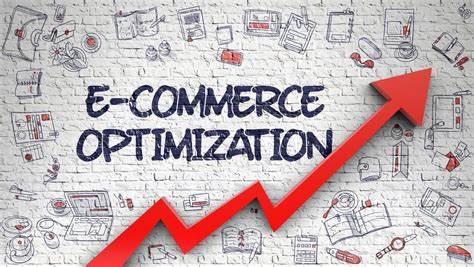
Stripe, Skrill and, PayPal – Side by Side Comparison
Getting web design services Malaysia for your ecommerce store but not sure which payment gateway to follow? Well, then this guide is just for you. No matter how good the social media and email marketing system is in bringing customers to your website, it needs to have payment processors for your customers to make the purchase. So to make it easy to find one for you, we have provided a comparison of the top ones in the industry.
1. Stripe:
Stripe is a platform that allows online businesses to take payments from their customers through various modes ranging from credit/debit cards to even Bitcoins. It is one of the top payment processing service providers out there next to PayPal and is known for its variety of payment methods and flat-rate fees.
Security:
They are PCI Compliant so they meet all the strict security standards set by the Payment Card industry. The data of card holders is pretty secure.
Ease of Integration:
Stripe is pretty easy to set up and you don’t really need any coding experience to do it. However, when setting up the ‘pay with card’ button on the website, you will have to hire someone with coding know-how as it is a bit tricky for non-techy users. But besides it, Stripe is super easy to sign up and you can do it for free. Stripe also offers support via online chat which is not the case with PayPal so you can quickly ask any questions you have regarding integration.
User Friendliness:
If we talk about user friendliness in terms of your customers then Stripe offers a lot more payment methods than PayPal. For instance, PayPal doesn’t support Bitcoin, AliPay, Apple Pay, and Android Pay, but Stripe does which makes it easier for all kinds of customers to make payment. Furthermore, it accepts payments in around 135 currencies, which gives you freedom to sell products around the globe. Stripe also offers custom invoicing for free for up to $1 million.
Suitability for Business:
The payment processor that comes right after PayPal in terms of market share and acceptability is none other than Stripe. It has an 18% global market share and is on 2nd number after PayPal (Source). If you are someone who is in countries where PayPal is not accepted or if you are selling in such countries then Stripe is the best alternatives, plus, their policies are not as strict as PayPal.
2. Skrill:
It is an online payments service provider that allows its users to transfer virtual currencies from one country to another around the globe. It is owned by a large payment services group; Paysafe and specializes in sending/receiving payments for gambling purposes.
Security:
They are PCI Compliant so they meet all the strict security standards set by the Payment Card industry. The data of card holders is pretty secure.
Ease of Integration:
Skrill only takes 24 hours to verify your details and register the account. You can then easily integrate it with your online store eve if you don’t know coding. PayPal and Stripe on the other hand take a bit longer than that. However, the problem with Skrill is that it is pretty tough to reach them if you need any kind of technical support. They have only email and phone available and no live chat but getting in contact via these two is also a bit difficult sometimes.
User Friendliness:
Just like Stripe, Skrill also accepts Bitcoin which gives it an edge over PayPal. Moreover, it accepts over 40 currencies and allows you to easily manage them in your single merchant account. Plus, it is available in 131 countries which is more than 26 countries that Stripe works in and less than 200 countries where PayPal is available.
Suitability for Business:
Out of the three, Skrill is suitable for risky transactions that can sometimes result in illegal activities as well such as online casino. However when it comes to global payment acceptability, Skrill is far behind than both PayPal and Stripe. It only has a 0.01% global market share (source), which is nothing as compared to the other two processors.
3. PayPal:
The online financial services provider, allowing you send and receive money on the go. It is the most widely used form of payment processing around the globe and virtually every ecommerce store uses PayPal. Its excellent security measures and wide acceptability makes it the top service provider in the digital payments world.
Security:
They are PCI Compliant so they meet all the strict security standards set by the Payment Card industry. The data of card holders is pretty secure.
Ease of Integration:
Although PayPal can take a few days to verify but once it is done, the integration with your store is pretty easy and straightforward. PayPal supports most of the CMS platforms, especially the major ones like WordPress and Shopify but Stripe supports a few more than PayPal.
User Friendliness:
As for transaction fees, PayPal doesn’t charge a fee when you transfer money between your 2 or more accounts but Skrill takes a 1.9% fee. Furthermore, PayPal offers support to customers via call, email and forum so they can ask any questions they have which also makes it easy for beginners to use it on their website.
Suitability for Business:
PayPal is highly suitable for online businesses especially for ecommerce stores as virtually every customer has it. Furthermore, PayPal has a 55.45% global market share (source), which makes it the number 1 payment processor in terms of availability and acceptability. However, its policies are very strict and it doesn’t support any shady transactions and can quickly restrict your account and freeze the funds.
Conclusion:
If you want to sell globally and receive money in their local currencies, then Stripe is a perfect solution because it also supports Bitcoin so that’s an added benefit. However, if you have a limited market and PayPal is accepted there, then going for PayPal might be a better option.
Lastly, for businesses that are a bit risky like gambling, Skrill is the go-to option. When getting an ecommerce website package Malaysia, ask the company to integrate the payment gateway that you see fit.


